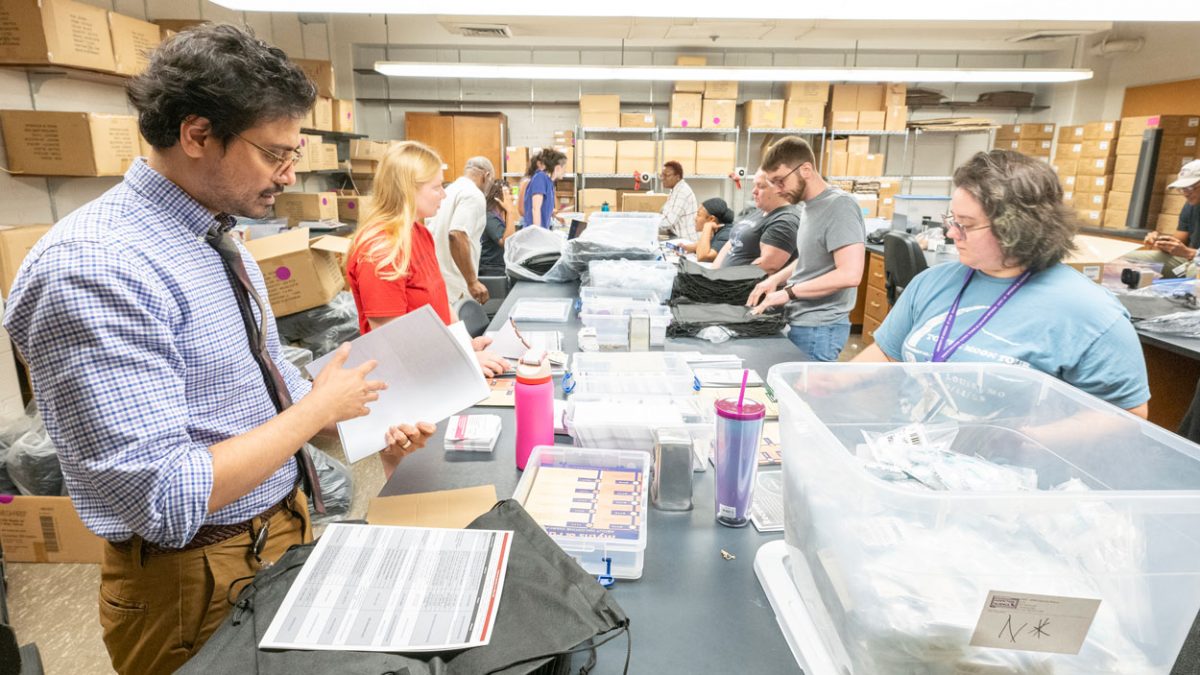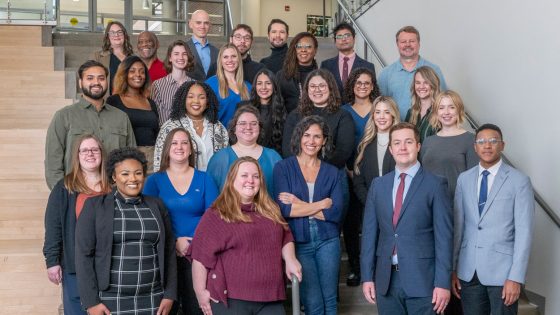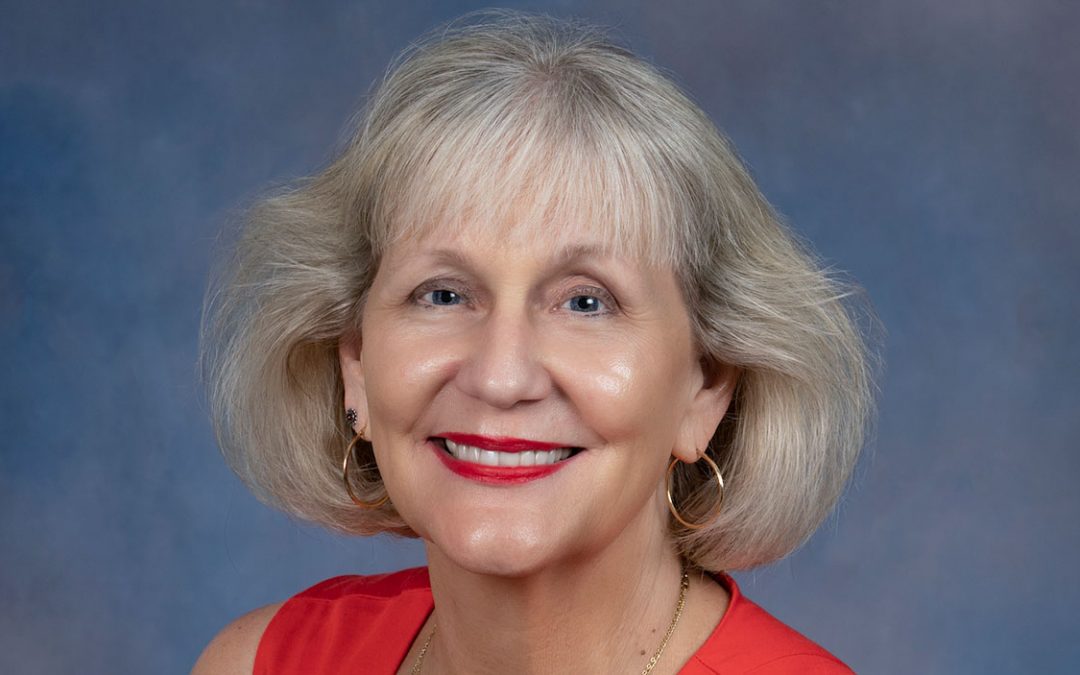
Members of UMSL’s Addiction Science Team assemble overdose prevention kits with doses of naloxone and information about treatment for addiction as part of their efforts to combat the opioid crisis in Missouri and reduce overdose deaths. (Photos by Derik Holtmann)
For years, the University of Missouri–St. Louis has been at the forefront of statewide efforts to combat the crisis of overdose deaths from opioids and other drugs.
Rachel Winograd, now an associate professor with a dual appointment in UMSL’s Department of Psychological Sciences and the Missouri Institute of Mental Health, was named the principal investigator for the Missouri Opioid/Heroin Overdose Prevention and Education Project in 2016. A year later, she took over as the director of the Missouri Department of Mental Health’s Opioid State Targeted Response project and has been steering efforts to implement a harm-reduction strategy in the face of the epidemic.

Associate Professor Rachel Winograd (center, with arms folded) leads UMSL’s Addiction Science Team and has served as the director of the Missouri Department of Mental Health’s Opioid State Targeted Response and Missouri State Opioid Response projects.
Winograd leads UMSL’s expanding Addiction Science Team, which has worked with partners across the state to engage directly with the people who use drugs and equip them with tools and information to help stem the tide of overdose deaths. But they’ve still faced plenty of agony while trying to get a handle on the crisis.
Missourinet last week highlighted a new report from the Addiction Science Team detailing some welcome good news in the ongoing battle to prevent overdose deaths. The report showed that Missouri saw an 11% decline in overdose deaths in 2023, marking the first decline since 2019.
The trend appears to be continuing in 2024.
“The Missouri Department of Health and Senior Services tracks overdose deaths data for our state and shows preliminary death by quarter,” Winograd told Missourinet. “And indeed, looking at the first half of this current year, it’s showing that we’re nearly 30% down from last year, which was already a decrease.”
She stopped short of celebrating.
“This is still an unfathomably high number and more lives lost than we should accept to a preventable death like a drug overdose,” Winograd said to Missourinet.
Similarly, the total number of Black men dying in Missouri from overdose decreased by 9% percent in 2023 after years of climbing, but Black men are still dying at a rate nearly three times higher than their white counterparts.
The synthetic opioid fentanyl continues to play an outsized role in overdoses and was present in 93 percent of overdose deaths.
NPR recently reported that the pipeline of fentanyl into the United State could be drying up because of a disruption in the supply chain. Winograd was reluctant to connect that potential trend with the drop in overdoses locally.
“Drug seizures at the border and elsewhere did really ramp up in 2023,” she told NPR. “But I do not think that has anything to do with the decrease, at least not here in Missouri.”
Instead, she pointed to factors such as improved addiction treatment and the spread of the drug overdose reversal medication Naloxone for helping to prevent deaths.
“Our state has done a really good job of getting Naloxone into the hands of people who need it the most,” Winograd told Missourinet. “Here in Missouri, we distributed over a quarter-million doses of Naloxone in 2023, which was nearly three times as much as we were able to distribute the year prior. I’m sure there are still people out there in pockets of Missouri who don’t have Naloxone and don’t know where to get it. And I think our job will not be done until we get Naloxone in their hands and make sure they know where to get it moving forward.”
She also advocated for better access to medication-assisted treatments, including buprenorphine and methadone, shown to decrease overdose risks by at least 50%.














